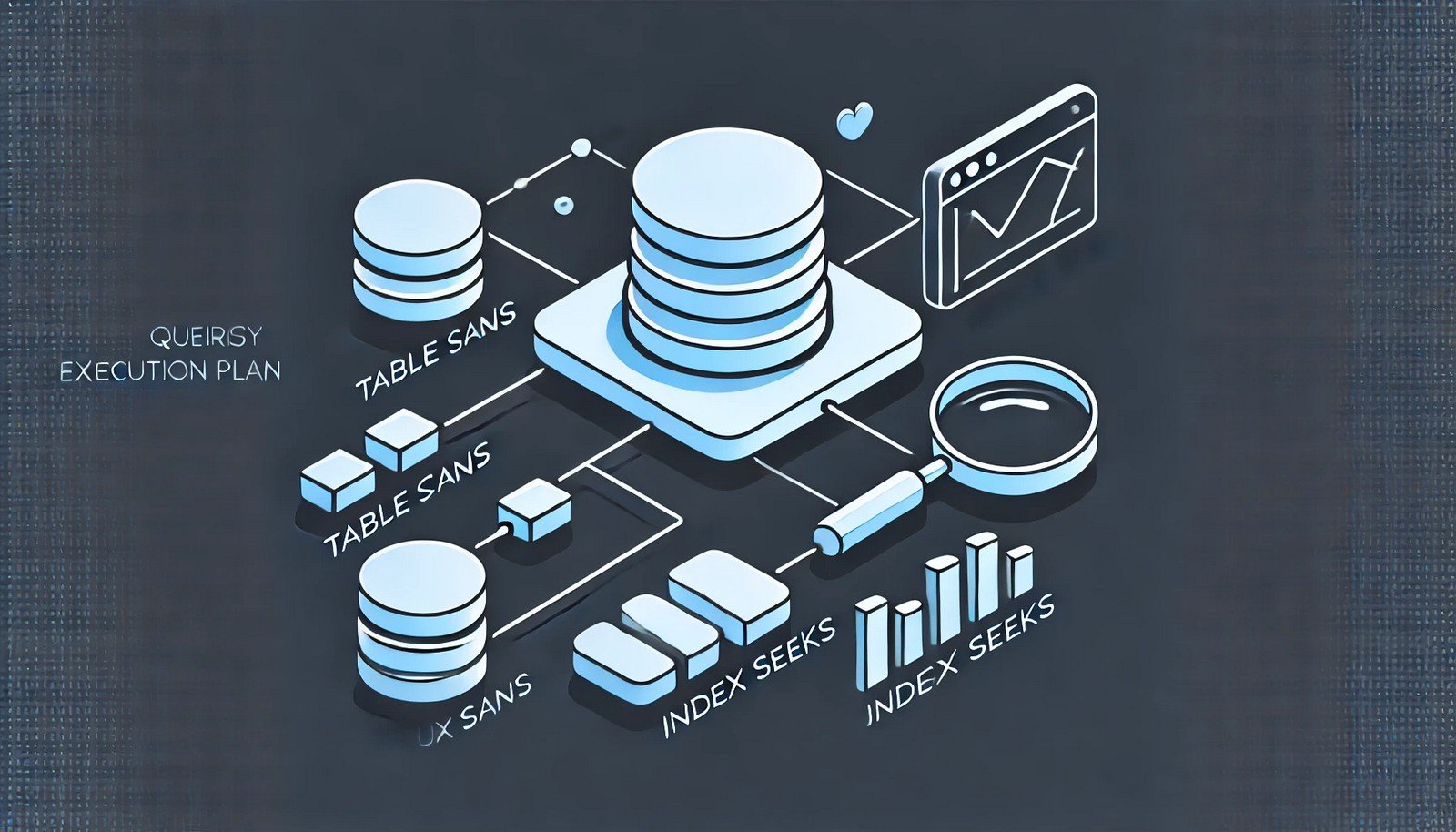Query Execution Plan

(Representational Image | Source: Dall-E)
Quick Navigation:
- Query Execution Plan Definition
- Query Execution Plan Explained Easy
- Query Execution Plan Origin
- Query Execution Plan Etymology
- Query Execution Plan Usage Trends
- Query Execution Plan Usage
- Query Execution Plan Examples in Context
- Query Execution Plan FAQ
- Query Execution Plan Related Words
Query Execution Plan Definition
A Query Execution Plan is a sequence of steps used by a database management system (DBMS) to execute a SQL query efficiently. The database optimizer generates this plan based on query structure, available indexes, and data distribution. It determines the best way to access data using operations such as table scans, index seeks, joins, and sorting. Query execution plans help developers and database administrators analyze performance bottlenecks and optimize queries for faster execution.
Query Execution Plan Explained Easy
Imagine you are looking for a book in a library. Instead of checking every shelf randomly, you first use the library catalog to find the section, then go directly to the correct shelf. A Query Execution Plan works the same way—it helps a database find data efficiently instead of searching through everything.
Query Execution Plan Origin
The concept of query execution planning originated with early relational database systems in the 1970s. As databases grew larger, optimizing query execution became essential for performance. Query optimizers evolved to automate this process, improving efficiency and reducing computational costs.
Query Execution Plan Etymology
The term "Query Execution Plan" derives from three key words:
- Query (a request for data)
- Execution (the process of running a command)
- Plan (a structured approach to achieving a task)
Query Execution Plan Usage Trends
With the rise of large-scale data systems, query execution plans have become a critical tool in database performance tuning. Modern databases use sophisticated query optimizers to dynamically adjust execution strategies based on real-time statistics. Cloud-based and distributed databases further refine execution plans for parallel processing, improving query performance across vast datasets.
Query Execution Plan Usage
- Formal/Technical Tagging:
- SQL Optimization
- Database Management
- Query Performance - Typical Collocations:
- "query execution time"
- "index-based execution plan"
- "cost-based optimizer"
- "SQL query plan analysis"
Query Execution Plan Examples in Context
- A database administrator reviews the query execution plan to optimize SQL queries for faster performance.
- The SQL Server Management Studio (SSMS) provides a graphical representation of the query execution plan to help developers visualize query operations.
- Using an index scan instead of an index seek in a query execution plan can lead to performance issues in large databases.
Query Execution Plan FAQ
- What is a query execution plan?
A query execution plan is a set of steps that a database follows to execute a SQL query efficiently. - Why is query execution planning important?
It helps optimize queries, reducing execution time and improving database performance. - How can I view a query execution plan?
Most databases provide tools to visualize execution plans, such as EXPLAIN in MySQL or EXPLAIN ANALYZE in PostgreSQL. - What factors affect a query execution plan?
Indexes, table structure, data distribution, and query complexity all impact execution plans. - What is the difference between an estimated and an actual execution plan?
An estimated execution plan predicts query execution, while an actual plan reflects real-time execution details. - How do indexes impact a query execution plan?
Indexes improve execution plans by reducing the need for full table scans, leading to faster query execution. - What is a cost-based query optimizer?
A cost-based optimizer analyzes multiple execution strategies and selects the most efficient one based on resource cost. - Can query execution plans change over time?
Yes, as data distribution and indexing change, the optimizer may generate different execution plans. - How can I optimize a slow query execution plan?
Use indexes, rewrite SQL queries, analyze statistics, and ensure efficient table joins to improve performance. - What role does query execution planning play in cloud databases?
Cloud databases use execution plans to distribute queries efficiently across multiple servers for scalability.
Query Execution Plan Related Words
- Categories/Topics:
- SQL Optimization
- Database Performance
- Relational Databases
Did you know?
Query execution plans can reveal hidden inefficiencies in SQL queries. In some cases, a simple change—like adding an index or rewriting a JOIN condition—can reduce execution time from minutes to milliseconds!
PicDictionary.com is an online dictionary in pictures. If you have questions or suggestions, please reach out to us on WhatsApp or Twitter.Authors | Arjun Vishnu | @ArjunAndVishnu

I am Vishnu. I like AI, Linux, Single Board Computers, and Cloud Computing. I create the web & video content, and I also write for popular websites.
My younger brother, Arjun handles image & video editing. Together, we run a YouTube Channel that's focused on reviewing gadgets and explaining technology.



Comments powered by CComment